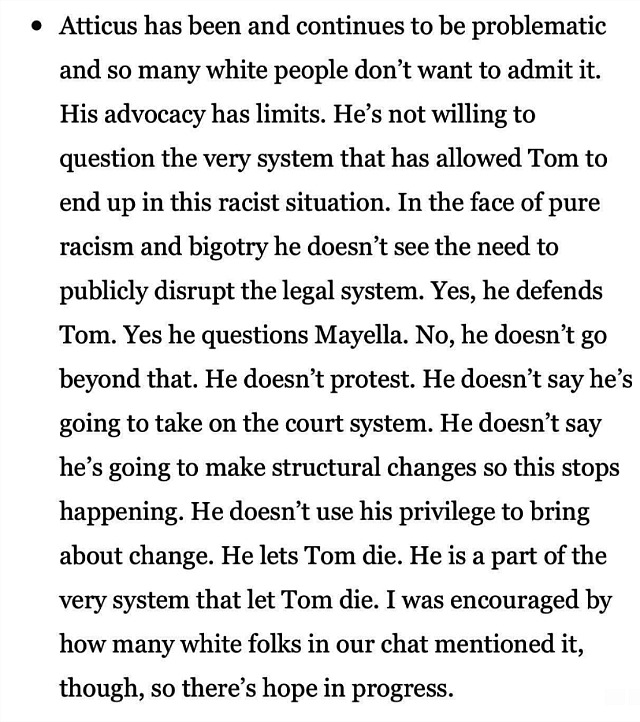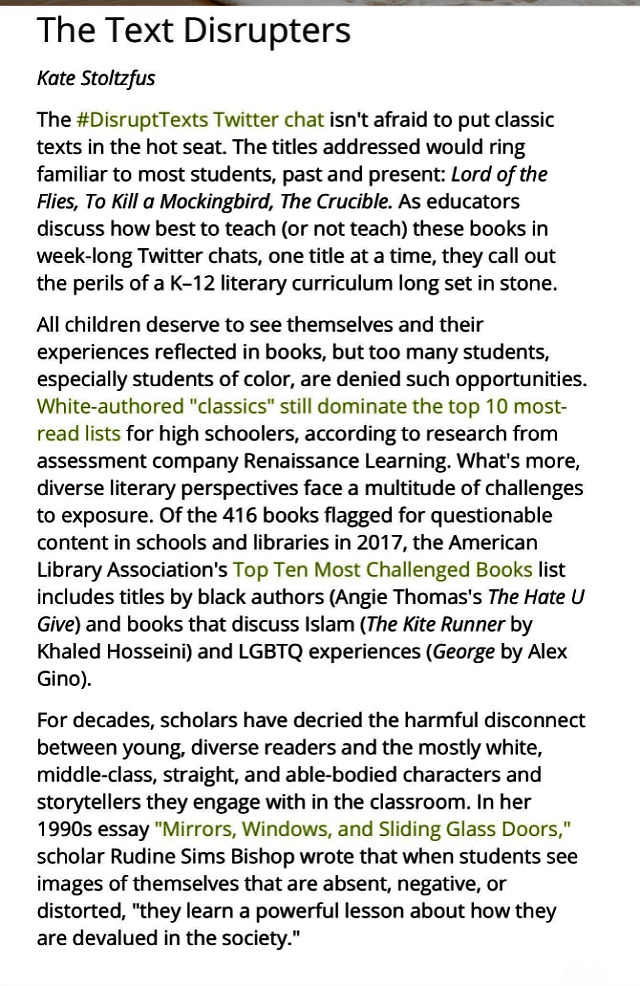#DisruptTexts is basically a movement by African American educators to challenge white narratives in standard-cirriculum literature for pre-college students. The idea is to introduce anti-racist perceptions and understandings.
If you wanted to be judgmental you could call #DisruptTexts a form of progressive revisionism or even a racially enlightened form of book burning. The other side of the coin is that we need to step outside of our white attitudes and take steps to redress our culture’s racist history. Or something like that.
I was struck this morning by the dismissive #DisruptTexts assessment of the beloved Atticus Finch, the small town widowed attorney, father of two children and moral hero of Harper Lee‘s “To Kill A Mockingbird,” which has been taught in schools for decades.
Last June a reader suggested to #DisruptTexts co-founder Lorena German that “we must show compassion to teachers and writers of the past [and not] judge them so harshly.”
Excerpt from German’s reply: “How about we spend some time finally showing compassion for the victims of racism and systemic oppression instead of the folks who perpetuated it? I don’t need to know someone’s heart, to know they were doing something wrong and inhumane. There were plenty of people at the time of Harper Lee writing books, essays, articles, and making speeches who were antiracist and already operating in a humane manner toward People of Color. Teachers and writers of that time could have shown empathy, the one you’re asking us to show, then toward those writers and thinkers. So, they’re not simply ‘teachers and writers of the past’ — they were participating in racism.”
Thoughts? And what would Gregory Peck say if he was around?



